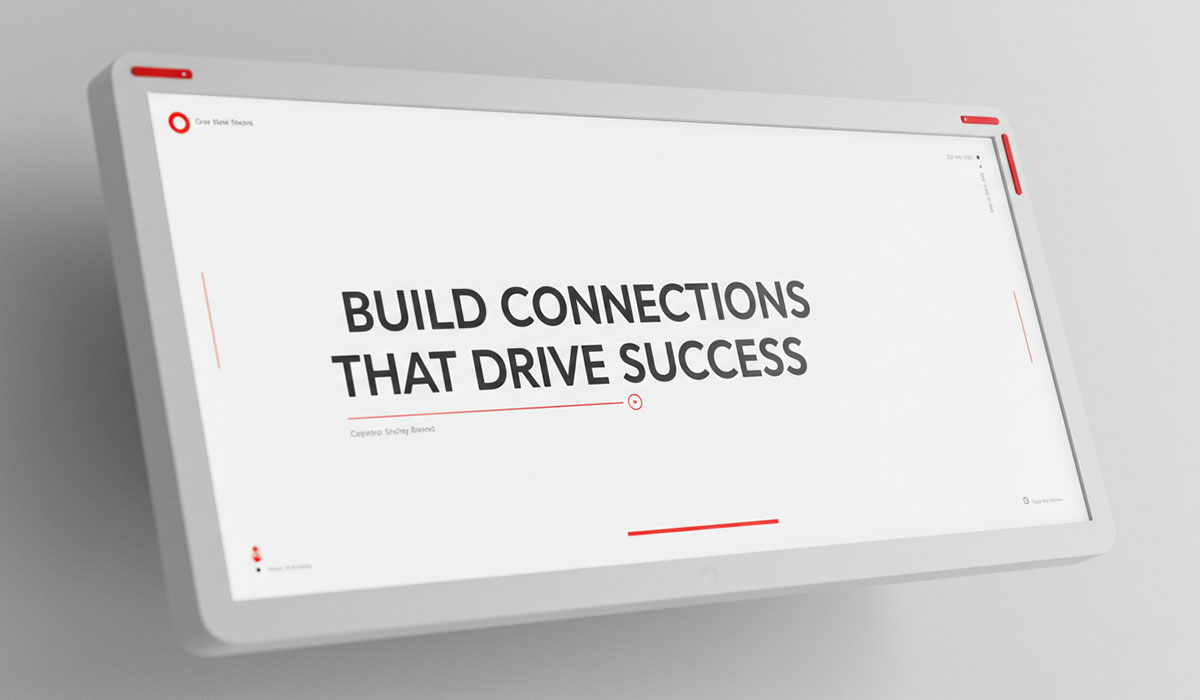Networking for Entrepreneurs: Build Connections That Drive Success
Let’s be real: starting a business is hard. Between refining your product, managing finances, and staying ahead of trends, entrepreneurs wear more hats than a royal wedding. But here’s the thing—many founders overlook one of the most powerful tools in their arsenal: networking.
It’s not just about swapping business cards or awkward small talk at cocktail hours. Strategic networking can be the difference between your startup fizzling out or becoming the next Airbnb. Let’s dive into why building connections is non-negotiable—and how it can supercharge your journey.
Why Networking is Non-Negotiable for Startups
1. Access to Resources: Investors, Markets, and Partners
Imagine you’re pitching your startup to an investor. Now imagine that investor already knows you because you met at an entrepreneur networking event six months ago. That’s the power of warm introductions.
Take Airbnb’s founders, for example. They leveraged networking to secure early funding from heavyweights like Paul Graham and Reid Hoffman. These connections didn’t just write checks—they opened doors to mentorship and industry credibility.
Networking also helps you tap into new markets. A study by FasterCapital found that 78% of startups attribute their first major client to a referral from their network. Whether it’s landing a pilot project or expanding overseas, relationships built through networking for entrepreneurs often lead to tangible opportunities.
2. Knowledge Sharing: Learn from Those Who’ve Been There
No one succeeds alone. Networking connects you with mentors and peers who’ve navigated the same pitfalls. For instance, James Mitchell, founder of a global tech startup, credits his expansion success to advice from seasoned entrepreneurs he met at young entrepreneurs networking events.
Platforms like LinkedIn are goldmines for insights. By engaging in industry groups or virtual summits, you can absorb strategies from leaders without leaving your desk. As Forbes notes, “Active participation in online forums can position you as a thought leader—even before your first product launch.”
3. Brand Building: Visibility = Credibility
Your startup might have groundbreaking tech, but if no one knows about it, growth stalls. Networking puts your brand in front of decision-makers. Attend trade shows, speak on panels, or collaborate on webinars.
Maria Rodriguez, founder of a boutique hotel chain, revived her business during a downturn by tapping her network for PR opportunities. Her story, highlighted by Pepperdine University, shows how visibility can turn crises into comebacks.
Networking for Entrepreneurs: Beyond the Handshake
Entrepreneur Networking Events: Where Magic Happens
From TechCrunch Disrupt to local co-working meetups, events are networking accelerators. Here’s why they matter:
- Face-to-face rapport: Trust builds faster when you’re sharing a coffee (or a sauna session—more on that later).
- Serendipity: You never know who’ll you meet. Spanx founder Sara Blakely landed mentorship from Richard Branson after a chance encounter at a conference.
For early-stage founders, young entrepreneurs networking events like Summit Series or Gen Z-focused meetups offer tailored support. These spaces prioritise collaboration over competition, fostering partnerships that last.
Global Entrepreneurship: Building Bridges Beyond Borders
In today’s interconnected world, global entrepreneurship thrives on cross-border networks. Platforms like LinkedIn and Alibaba’s ecosystem make it easier than ever to connect with international suppliers, clients, and investors.
Consider Dropbox: its referral program, fueled by global tech communities, helped it grow to 500 million users. As Startups Magazine puts it, “The most scalable startups treat networking as a growth hack, not a chore.”
Case Studies: Networking Wins in Action
- Airbnb: Secured early funding through Y Combinator’s network.
- Spanx: Leveraged Branson’s mentorship to land deals with Neiman Marcus and Bloomingdale’s.
- Local Success Story: A food delivery startup in Berlin scaled across Europe after partnering with a logistics expert met at a young entrepreneurs networking event.
Traditional vs. Modern Networking: What Works Best?
Let’s break down the evolution of networking strategies:
| Traditional Networking | Modern Networking |
|---|---|
| Conferences, trade shows | LinkedIn, virtual summits |
| Local business groups | AI-driven platforms like Shapr |
| Cold emails | Wellness-centric meetups (e.g., sauna sessions) |
| Printed business cards | Digital profiles with QR codes |
While face-to-face interactions still matter, modern tools let you scale relationships efficiently. For example, AI platforms analyse your goals to suggest ideal contacts, saving hours of guesswork.
Best Practices to Network Like a Pro
- Be Intentional: Attend events aligned with your goals. If you’re in tech, prioritise hackathons over generic mixers.
- Leverage Social Media: Share insights on LinkedIn. Comment on industry posts to stay top-of-mind.
- Follow Up: Send a personalised message after meeting someone. Reference a topic you discussed to jog their memory.
- Give First: Offer value before asking for favors. Introduce contacts, share resources, or provide feedback.
Conclusion: Your Network = Your Net Worth
Networking isn’t just about collecting contacts—it’s about cultivating relationships that fuel growth. Whether you’re pitching at a global entrepreneurship summit or bonding with peers at a casual meetup, every connection plants a seed for future success.
So, ditch the “I’m too busy” excuse. Your next big break could be one conversation away.
Ready to level up? Share this post with a founder who needs a networking nudge—and tag them in the comments! 👇
References linked within the text. For further reading, explore How Networking Transforms Startups or Innovative Networking Strategies.
